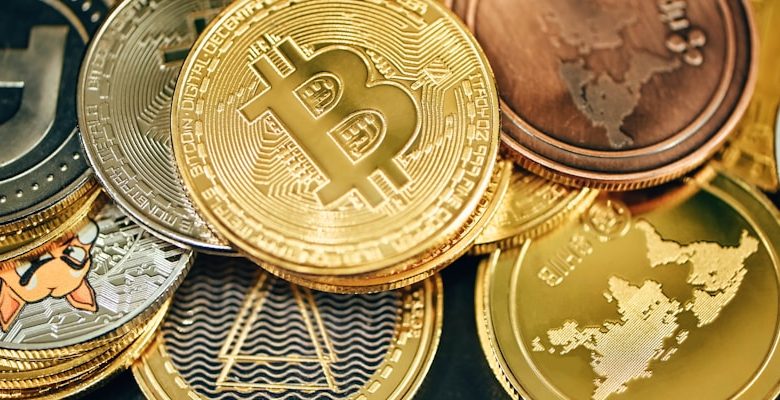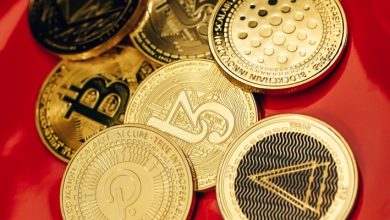The Role of Tokens in Decentralized Finance (DeFi)

- Understanding the Basics of Tokens in DeFi
- The Evolution of Tokens in Decentralized Finance
- Tokenization: A Key Component of DeFi Ecosystem
- Exploring the Utility of Tokens in DeFi Platforms
- The Impact of Tokens on Decentralized Finance
- Token Standards and Their Significance in DeFi
Understanding the Basics of Tokens in DeFi
Tokens in DeFi play a crucial role in the functioning of decentralized finance platforms. These digital assets are used to represent various financial instruments such as cryptocurrencies, stablecoins, and utility tokens. Understanding the basics of tokens in DeFi is essential for anyone looking to participate in this rapidly growing sector.
One of the key characteristics of tokens in DeFi is their programmability. This means that developers can create smart contracts that define the behavior and functionality of a token. For example, a token can be programmed to automatically execute certain actions when specific conditions are met, such as distributing rewards to token holders.
Another important aspect of tokens in DeFi is their interoperability. Tokens can be easily exchanged and transferred between different DeFi platforms, enabling seamless integration across various applications. This interoperability is essential for creating a vibrant and interconnected ecosystem of decentralized financial services.
The Evolution of Tokens in Decentralized Finance
The evolution of tokens in decentralized finance (DeFi) has been a significant driving force behind the growth and development of this innovative ecosystem. Tokens play a crucial role in enabling various DeFi protocols and applications to function effectively, offering users a wide range of benefits such as governance rights, staking rewards, and access to decentralized lending and borrowing platforms.
Initially, DeFi tokens were primarily used as a means of raising funds for projects through initial coin offerings (ICOs) or token sales. However, as the DeFi space matured, the focus shifted towards creating utility tokens that serve specific purposes within decentralized applications. These utility tokens are designed to incentivize users to participate in network activities, such as providing liquidity, voting on governance proposals, or contributing to the security of the network.
One of the most notable trends in the evolution of DeFi tokens is the rise of decentralized autonomous organizations (DAOs) that use tokens as a mechanism for decentralized governance. DAOs enable token holders to collectively make decisions about the future direction of a project, including protocol upgrades, changes to token economics, and the allocation of community funds. This shift towards decentralized governance has been instrumental in promoting transparency, fairness, and inclusivity within the DeFi ecosystem.
Another key development in the evolution of DeFi tokens is the emergence of tokenized assets, such as stablecoins and synthetic assets, that represent real-world assets on the blockchain. These tokenized assets enable users to access a wide range of financial services, including decentralized exchanges, lending platforms, and derivatives markets, without the need for traditional intermediaries. By leveraging blockchain technology, these tokens offer increased efficiency, transparency, and security compared to their traditional counterparts.
Overall, the evolution of tokens in decentralized finance has been marked by innovation, experimentation, and growth. As the DeFi ecosystem continues to expand and mature, we can expect to see further advancements in token design, governance mechanisms, and asset tokenization that will unlock new opportunities for users and drive continued adoption of decentralized financial services.
Tokenization: A Key Component of DeFi Ecosystem
In the decentralized finance (DeFi) ecosystem, tokenization plays a crucial role in enabling various financial activities to be conducted on blockchain networks. Tokens represent digital assets that can be issued, traded, and utilized within decentralized applications (dApps). Tokenization involves converting real-world or digital assets into tokens that are compatible with blockchain technology, allowing for greater liquidity, accessibility, and efficiency in the DeFi space.
Exploring the Utility of Tokens in DeFi Platforms
One of the key aspects of decentralized finance (DeFi) platforms is the utility of tokens. These tokens play a crucial role in the functioning of DeFi ecosystems by providing various benefits to users. Tokens can serve multiple purposes, such as governance, incentivization, and access to specific features within the platform.
When exploring the utility of tokens in DeFi platforms, it is essential to consider how they contribute to the overall user experience. By holding tokens, users can participate in governance processes, such as voting on protocol upgrades or changes. This gives them a voice in the decision-making process and helps maintain a decentralized nature within the platform.
Furthermore, tokens in DeFi platforms can be used to incentivize users to participate in various activities, such as providing liquidity or staking their assets. By offering rewards in the form of tokens, platforms can encourage users to contribute to the ecosystem and help ensure its sustainability over time.
Additionally, tokens can provide access to specific features or services within DeFi platforms. For example, holding a certain amount of tokens may unlock premium functionalities or reduce transaction fees for users. This creates a sense of exclusivity and value for token holders, incentivizing them to acquire and hold onto these tokens.
In conclusion, the utility of tokens in DeFi platforms is multifaceted and plays a crucial role in driving user engagement and participation. By understanding the various benefits that tokens offer, users can make informed decisions about their involvement in DeFi ecosystems and maximize the value they receive from these platforms.
The Impact of Tokens on Decentralized Finance
Tokens play a crucial role in the realm of decentralized finance (DeFi), revolutionizing the way individuals interact with financial services. These digital assets enable users to participate in various DeFi protocols, such as lending, borrowing, and trading, without the need for intermediaries. The impact of tokens on DeFi is profound, as they provide users with ownership rights, governance privileges, and the ability to earn rewards within the ecosystem.
One of the key benefits of tokens in DeFi is their utility in facilitating peer-to-peer transactions seamlessly. By using tokens, users can transact directly with one another on decentralized platforms, eliminating the need for traditional financial institutions. This peer-to-peer nature of DeFi allows for greater financial inclusivity, enabling individuals worldwide to access financial services that were previously out of reach.
Furthermore, tokens serve as the lifeblood of decentralized applications (dApps) within the DeFi space. These dApps leverage tokens to incentivize user participation, secure networks through staking mechanisms, and govern protocol upgrades through voting mechanisms. As a result, tokens empower users to actively engage in the development and evolution of the DeFi ecosystem, fostering a more democratic and community-driven financial landscape.
Moreover, tokens also play a significant role in providing liquidity to decentralized exchanges (DEXs) and automated market makers (AMMs). Users can contribute their tokens to liquidity pools, enabling others to trade assets seamlessly while earning fees in return. This liquidity provision mechanism enhances the efficiency of DeFi markets, ensuring that users can access assets at competitive prices without relying on centralized exchanges.
In conclusion, the impact of tokens on DeFi is transformative, empowering users to access financial services, participate in governance processes, and earn rewards within decentralized ecosystems. As the DeFi space continues to evolve, tokens will remain at the forefront of innovation, driving the democratization of finance and redefining the way individuals interact with the global financial system.
Token Standards and Their Significance in DeFi
Token standards play a crucial role in the world of decentralized finance (DeFi). These standards define the rules and protocols that tokens must adhere to in order to be compatible with various DeFi platforms. One of the most widely used token standards is the ERC-20 standard, which was introduced by Ethereum. This standard has become the foundation for the majority of tokens within the DeFi ecosystem.
Token standards are significant in DeFi because they ensure interoperability between different tokens and platforms. By following a common set of rules, tokens can be easily integrated into various DeFi applications, such as decentralized exchanges, lending platforms, and liquidity pools. This interoperability is essential for the seamless functioning of the DeFi ecosystem.
Another important aspect of token standards is their role in ensuring the security and reliability of tokens. By adhering to established standards, token issuers can provide users with a level of confidence in the legitimacy of their tokens. This helps to prevent fraud and scams within the DeFi space, ultimately protecting investors and users.



